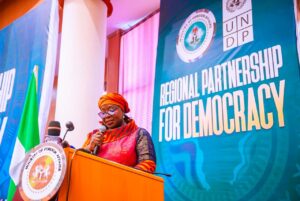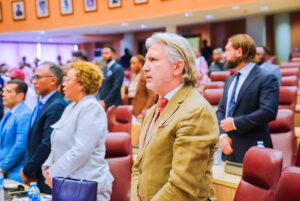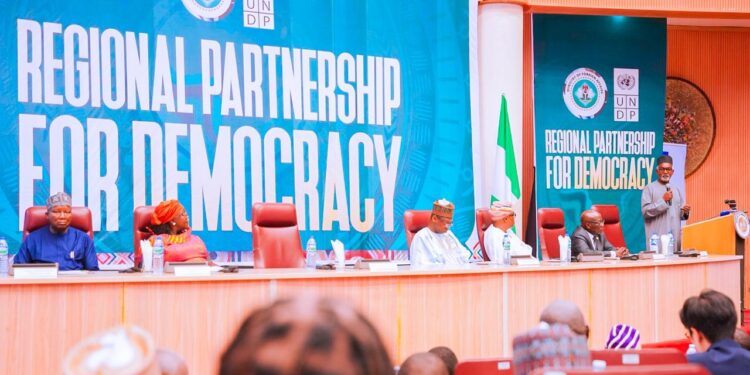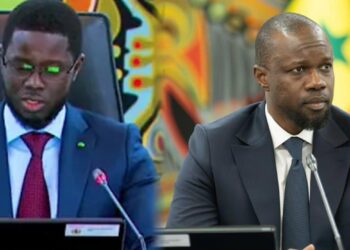Nigeria has entered into a landmark agreement with the United Nations Development Programme (UNDP) and the Economic Community of West African States (ECOWAS) to advance democratic governance and curb rising political instability across the region.
The deal, signed on Monday in Abuja, establishes the Regional Partnership for Democracy (RPD), a new framework designed to address democratic backsliding, strengthen institutions, and promote governance solutions rooted in African realities.
Speaking at the signing ceremony, Nigeria’s Minister of Foreign Affairs, Yusuf Tuggar, described the initiative as “the opening of a new chapter in Africa’s democratic journey.” He noted that the continent is grappling with deep governance challenges, including fragile institutions, weak social contracts and recurring political crises.
“We meet at a moment when democratic governance in Africa is confronted by sobering and deeply complex challenges, Too often, these structural weaknesses culminate in unconstitutional changes of government or protracted political instability,” Tuggar said.
According to him, the RPD was conceived to ensure that democracy on the continent evolves from externally imposed models to systems that reflect local contexts and aspirations. Tuggar explained that the initiative also reflects President Bola Tinubu’s commitment to democratic renewal in the sub-region, adding that it will be jointly housed in the Ministry of Foreign Affairs and the UN Resident Coordinator’s office in Abuja.
Also, UNDP’s Resident Representative in Nigeria, Elsie Attafuah, said the RPD would serve as a catalyst for transforming democratic principles into measurable governance outcomes. She stressed the importance of restoring public trust in institutions and reinforcing constitutional order.

Attafuah added that the UNDP is committed to mobilizing resources, convening key stakeholders, and offering technical expertise to support implementation. “This signing is not a conclusion, but a beginning a movement to ensure that democracy becomes a lived reality across West African capitals and communities,” she said.
She emphasized accountability, transparency and global best practices as core elements of the new partnership, while commending Nigeria and ECOWAS for pioneering a model that could reshape governance across the continent.
ECOWAS Commission President, Dr. Omar Touray, also highlighted the urgency of the initiative. He noted that governance in West Africa has long struggled to deliver basic infrastructure, social protection and security, failures that have deepened frustrations and created openings for unconstitutional changes of government.
Touray warned that the region is experiencing a troubling resurgence of coups and political manoeuvres that erode constitutionalism. He cited the exclusion of key candidates from elections through judicial processes, growing misinformation amplified by AI and social media, and the destabilising impact of terrorism as factors worsening democratic decline.
“These trends are reshaping the regional landscape and demand a renewed introspection on the future of West African integration,” he said.

Meanwhile, the newly launched RPD aims to strengthen electoral systems, support early-warning mechanisms, increase women’s political participation, counter disinformation, and promote long-term democratic stability. Stakeholders say the pact represents a collective resolve to safeguard the region’s democratic gains and chart a more resilient governance future for West Africa.




































